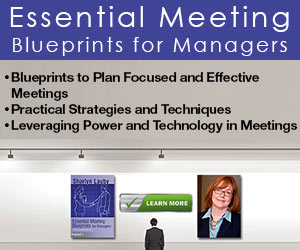I’ve read a few good posts recently about the need for schedule management. So naturally, I feel compelled to toss in my two-cents. The first one that crossed my desk was from the Harvard Business Review titled “Your Late Night Emails are Hurting Your Team”. It’s a very good read and one that managers should spend some time pondering. My guess is we’ve all done it at some point. And maybe we still do. It’s late, you remember something and, so you don’t forget it, you shoot off a quick email. It’s not meant to be a burden to the recipient. It’s meant to be a relief for the sender.
Now as you can surmise from the title, the author suggests not sending emails late in the evening hours because it totally stresses out employees. I totally get it. And even though I’m one of those people who does send a late night or weekend email, I completely agree with the author. Companies with an “always being on” culture are burning employees out.
But banishing late night email isn’t the answer. Because that just turns late night email into first thing in the morning email. The answer is to set expectations regarding email response times. And respect them.
I think I’ve mentioned once or twice before that I facilitated a focus group for a customer service program I was designing. We talked about email response times. You know what the overwhelming answer was from focus group participants regarding acceptable email response times? 24 hours. Yep.
Not ten minutes, not ten days. 24 hours.
Which means that if someone sends an email at 9 p.m. the recipient should not feel guilty that they weren’t tethered to their phone ready to respond within ten minutes. And the sender shouldn’t expect them to. If it’s an emergency, then it should be treated like an emergency, which probably means another form of communication other than email.
The second read that caught my eye was fellow Workforce Institute board member David Creelman’s latest post, “Employee Centered Schedule Optimization”. What struck me is that we’re not talking about an “only exempt” or “only non-exempt” issue. Being able to have some control over your schedule impacts every single level of the organization.
David’s post serves as a reminder that, in order to achieve balance, we need to have some rules or guidelines about work schedules. Even when we’re in positions that might appear to be incredibly flexible. For instance, many organizations give non-exempt staff a tremendous amount of schedule flexibility because they can contact them after hours. But is there a point where that after hours contact is crossing the line?
Sure, I understand. Maybe it only takes 5-minutes to respond. How much can that contribute to stressed out employees? Unfortunately, it’s when there are multiple 5-minute responses. Every evening. And all weekend long.
The answer isn’t to stop allowing employees schedule flexibility. The answer is to set expectations and respect them. Flexible working arrangements are not a substitute for answering evening or weekend emails.
[Tweet “We need to set workplace expectations and respect them”]
The bottom-line is that everyone should have a certain level of consciousness about the content of their messages, the method they use to send them, and the timing. In addition, there should be clear and reasonable expectations regarding a response. And those expectations need to be respected.
Image courtesy of Sharlyn Lauby








M Valle says
Thanks for this post. I agree – while it provides the sender with relief for taking care of a quick item, it inadvertently adds after-hours stress on the recipient.
I’m often guilty of the after-hours “quick reply” but I set my delivery options for the next business morning. That’s primarily for me, so I don’t set expectations that I am usually online and available outside of working hours. But it can also offer less stress to the recipient as well as they won’t know if I’ve sent it at 1 am or 9 am.
Sharlyn Lauby says
Thanks for the comment. I certainly see your point. Don’t send the email so it doesn’t create any expectation to answer it.
My preference would be to get the email (whenever) and manage expectations for my reply. Otherwise, I could see everyone setting their emails to be delivered in the morning and then I just get bombarded at 9a. Not sure that helps productivity.
Ultimately, as long as there are clear expectations at an organizational level and everyone respects them, it should provide a better and more productive solution.
Carolyn Sokol says
Wow, I’m glad I did not miss this post. I run a web based business out of my home. I started this late in my career after having stayed home for many years to raise my children. It took a long time for me to ‘catch up’ with technology, that includes proficiencies as simple as even email.
In my world, I work primarily at night and on weekends, doing exactly what the post describes. As I am busy with my kids during the day & don’t require much sleep, I think nothing of sending an email at midnight. As ridiculous as this sounds, I have never taken note of the time I sent or received an email, it doesn’t even register with me. I see the day, that’s all I look at, I just assumed it was that way with everyone else.
This is a definite disadvantage to working from home, you are completely removed from social/business/office etiquette, so to speak. I never thought about the person on the other end, I just thought, “they’ll see it when they check their email, who cares when I send it.” I didn’t consider the employee who leaves their phone on and gets notified at 2:00am they received a message.
And to M Valle – thank you for making me aware there is such a thing as “Delivery Options!” Problem solved!
Carolyn Sokol says
Oh, I like Sharlyn’s comment, “My preference would be to get the email (whenever)…” as I never expect a response within a few hours, I expect a day or two. That’s probably because that’s how long it takes me to respond!
Sharlyn Lauby says
Hi Carolyn. Thanks for sharing. You bring up a great point about time. As we see more consultants, contractors and freelancers, does the idea of time change? We’re being held accountable for results, whether we work 9a-5p or midnight to noon.
Also, I wonder what that means for employees on virtual teams and telework. I do think it’s important that workers do not get stressed out. It impacts their well-being and company productivity.
Wendy Swenson says
Sometimes I just send the email to myself , then forward to the person the next day – after cleaning up the forwarding info . Then they don’t think I work ridiculous hours and it saves the thought so I don’t forget it and let’s me sleep well .
Sharlyn Lauby says
Wendy – thanks for sharing. I need to get better about having Siri send me reminders (versus sending the email).
Amanda Shore says
It’s important that companies be explicit about their expectations for employees both inside and outside the office. Communication is the key to reducing employee stress. I often find that when I don’t know what my superior wants or needs or expects of me, that’s when I get anxious.
I happen to know that in gmail you can delay the sending of an email and there are also several applications (Boomerang is the one that comes to mind) that allow you to schedule emails.
Personally, I have a work email and a personal email and I don’t open my work email unless I’m able to do work. Just a thought.
Beth Grierson says
Providing clear expectations on response times (which you can easily reinforce in a subject line) is wonderful, but honestly even if I know someone doesn’t need a response until tomorrow, if I see that email it’s going to be on my mind tonight – so great, the sender gets a bit of relief, but does so by passing the stress on down the line.
Yes, forwarding in the morning, or delaying the send may result in someone being bombarded first thing in the morning, but don’t most of us expect to have to deal with our inboxes in the morning? YMMV, but I’d rather deal with a large quantity of emails first thing, as I plan out my day (or week).
Sharlyn Lauby says
Thanks for keeping this conversation going!
@Amanda – I agree that companies need to be clear in their communications. And I like your discipline regarding work emails. Don’t look at them unless you’re prepared to do something with them. Thanks for sharing!
@Beth – You’re right, this does appear to be an individual preference. Maybe as part of setting expectations we need to ask people, “Are you okay with receiving emails after hours? Not responding, just receiving.” Thanks for sharing your POV.